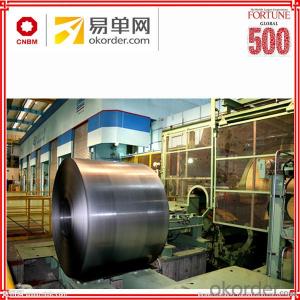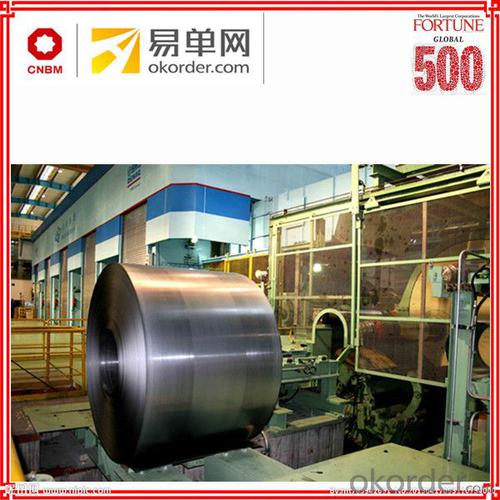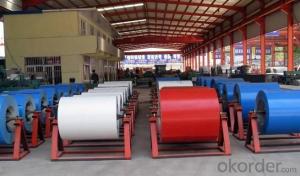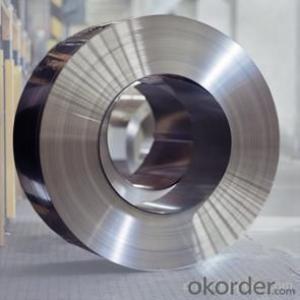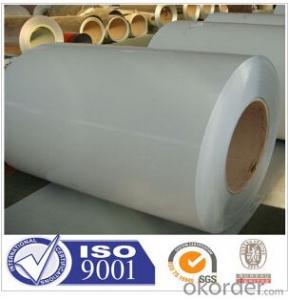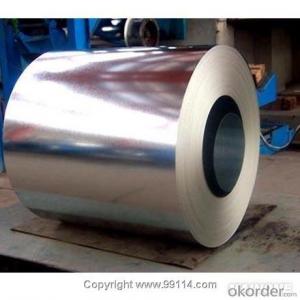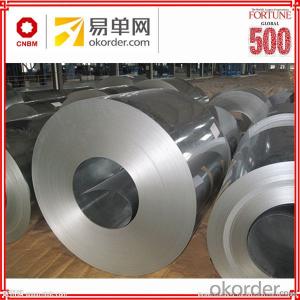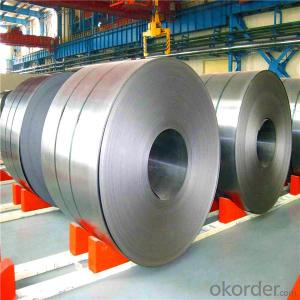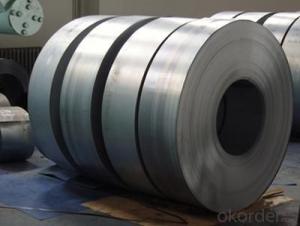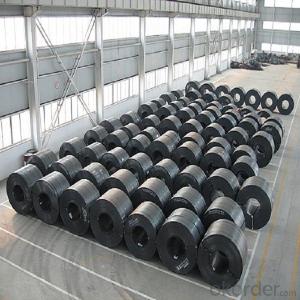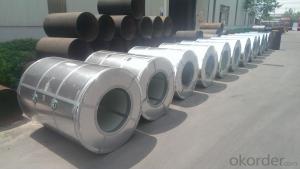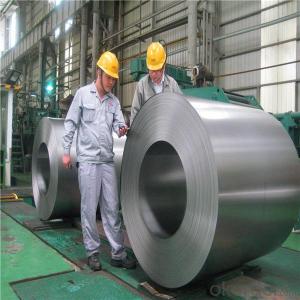Coil of steel made by manufacturer china
- Loading Port:
- Tianjin
- Payment Terms:
- TT OR LC
- Min Order Qty:
- 50 m.t.
- Supply Capability:
- 52767 m.t./month
OKorder Service Pledge
OKorder Financial Service
You Might Also Like
Specification
Cold rolled sheet products have been available for many, many years, and have been successfully used for a multitude
of applications. Today's cold rolled sheet products are much improved over those used in the past. They offer better control
of thickness, shape, width, surface finish, and other special quality features that compliment the emerging need for highly
engineered end use applications.
Standard and Grade :
Cold rolled steel coils | ||||
JIS G3141-2005 | EN10130-2006 | ASTM A1008-12a | ||
Commercial quality | SPCC | DC01 | CS Type A/B/C | |
Drawing quality | SPCD | DC03 | DS Type A/B | |
Deep drawing quality | SPCE SPCF(non aging) | DC04 | DDS | |
Extra deep drawing quality | SPCG(non aging) | DC05/06 | EDDS | |
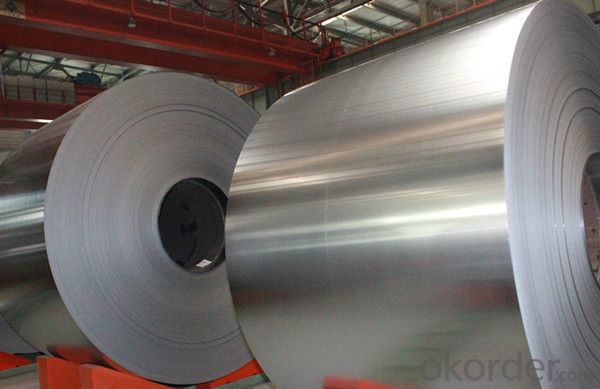
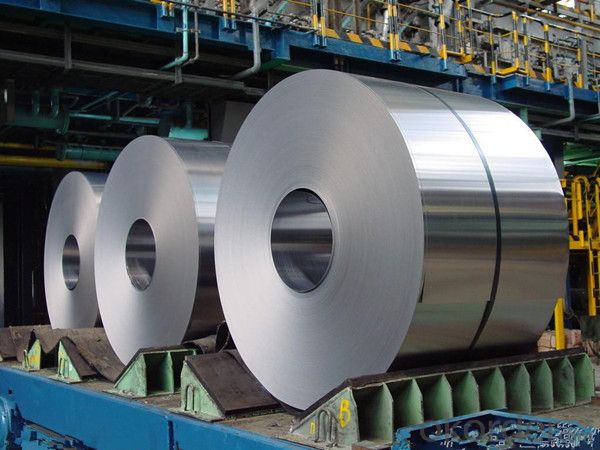
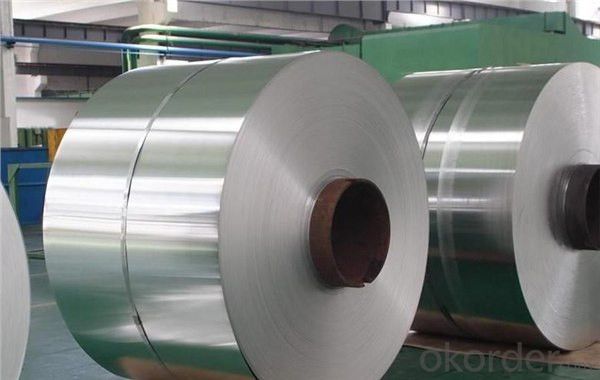
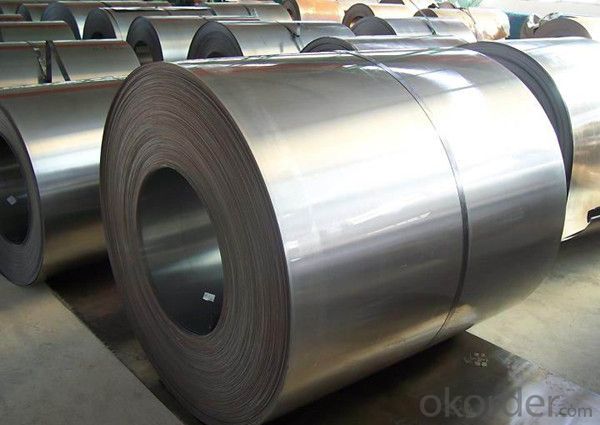
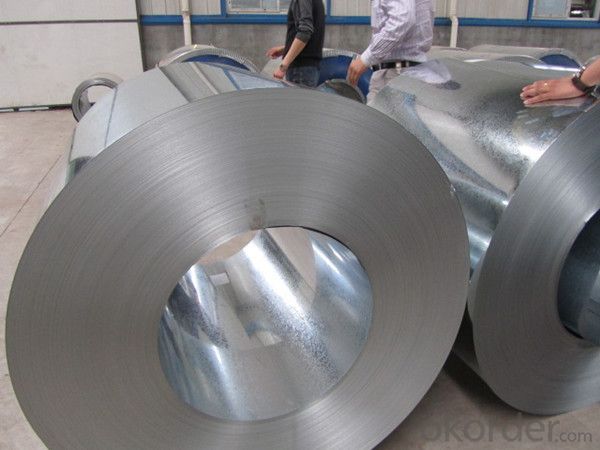
Application :
Automobile Industry, White Goods, Home Applicances, Oil & Air filters, semi product for coating with enamel or zinc, construction &
building sector, air-conditioning, furniture, radiators, tubes, profiles, mechanical construction, shelving, containers, drums
Packing:
Packaging Detail | The packing of coil consists of anti-damp paper ,PVC film ,hardboard paper , steel box , strapped with steel strips, fitted with locks and edge protectors and guarantees the optimal condition of the delivered goods. Each coil can be additionally fitted with wooden/steel skids(eye of the side) or wooden pallets(eye of the sky) |
Delivery Time | within 30 days of receipt of LC original or prepayment |
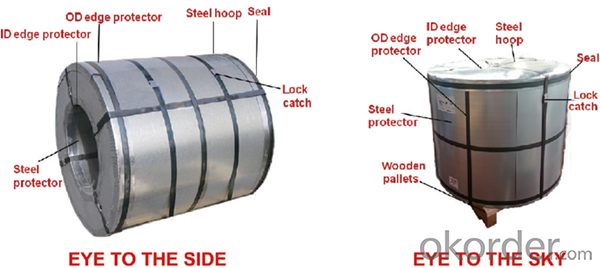
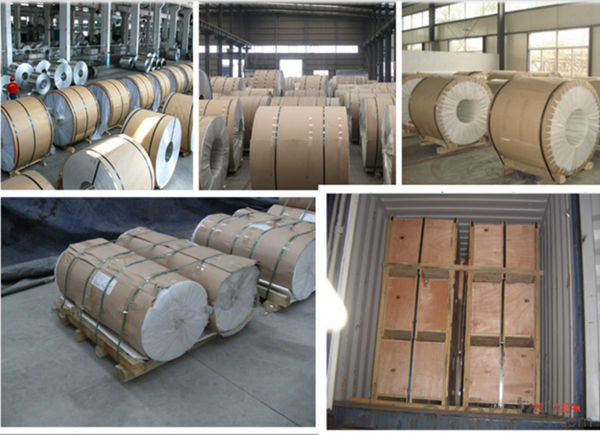
Our Services:
MOQ | FCL, 25 metric tons per 20GP, can be assorted with different sizes. |
LCL for trial order is acceptable. | |
Price Term | EX-WORK, FOB China Port, CNF, CIF |
Payment | T/T, 30% advanced payment before production and balance before shipment; OR Irrevocable L/C at sight. |
Delivery Time | within 30 days of receipt of LC original or prepayment |
FAQ:
1. Can you offer OEM to me? What about MOQ?
Of course, we are a professional with OEM manufacturer for 9 years. the MOQ can be 50 ton/ order.
2. How to guarantee the quality of the products?
We have established the international advanced quality management system,every link from raw material to final product we
have strict quality test;We resolutely put an end to unqualified products flowing into the market. At the same time, we will
provide necessary follow-up service assurance.
3. How long can we receive the product after purchase?
Usually within thirty working days after receiving buyer’s advance payment or LC. We will arrange the factory manufacturing
as soon as possible. The cargo readiness usually takes 15-25 days, but the shipment will depend on the vessel situation.
4.How Can I Get Some Sample?
We are honored to offer you free sample, but courier charges will be on your side.
- Q: Can steel coils be used in the production of aerospace components?
- Yes, steel coils can be used in the production of aerospace components. Steel is a durable and versatile material that offers excellent strength-to-weight ratio, making it suitable for various applications in the aerospace industry. Steel coils can be processed and shaped to meet specific requirements, such as forming intricate components, structural parts, or even for use in aerospace engines. Additionally, steel's corrosion resistance properties and ability to withstand high temperatures make it a reliable choice for aerospace applications.
- Q: How are steel coils used in the manufacturing of metal containers?
- Steel coils are used in the manufacturing of metal containers as they are typically unrolled and cut into specific sizes and shapes to form the body of the container. These steel coils provide strength and durability to the containers, making them suitable for storing various products such as food, beverages, chemicals, and more.
- Q: How are steel coils used in the production of bridges and infrastructure?
- Steel coils are indispensable in the manufacturing of bridges and infrastructure. Made from sturdy and long-lasting steel, these coils can endure heavy loads and harsh environmental conditions. When constructing bridges, steel coils are utilized to produce structural elements like beams, girders, and columns. These components offer the necessary strength and support to the bridge, enabling it to bear the weight of vehicles, pedestrians, and other loads. The steel coils are shaped through rolling, cut to the required length, and then welded or bolted together to form these structural elements. Moreover, steel coils are also employed in the creation of bridge decks, which serve as the roadways or walkways on the bridge. These coils are processed into steel plates, which are then assembled and secured onto the bridge structure. The steel plates provide a smooth and durable surface for vehicles and pedestrians to traverse. Regarding infrastructure, steel coils play a crucial role in the construction of various structures such as buildings, stadiums, and industrial facilities. They are utilized to fabricate primary support systems, including columns, beams, and trusses, which furnish the necessary strength and stability to these structures. Steel coils are also used to manufacture roofing and cladding systems, ensuring protection against weather elements and enhancing the overall aesthetics of the infrastructure. Furthermore, steel coils frequently contribute to the production of reinforcing bars, commonly known as rebar. Rebar is essential for strengthening concrete structures like foundations, walls, and slabs. These coils are processed into different sizes and shapes, and subsequently embedded within the concrete to enhance its tensile strength and prevent cracking or collapsing under heavy loads. In conclusion, steel coils are a vital component in the manufacturing of bridges and infrastructure. Their strength, durability, and versatility make them an ideal material for constructing secure and dependable structures that can withstand the test of time.
- Q: How are steel coils processed for cold rolling or hot rolling?
- Steel coils are processed for cold rolling or hot rolling through a series of steps. For cold rolling, the steel coils are first cleaned and pickled to remove any impurities. They are then passed through a series of rolling mills, where the steel is gradually reduced in thickness and elongated. This process improves the steel's strength and surface finish. In contrast, for hot rolling, the steel coils are heated to high temperatures and then passed through a series of rolling mills. The hot rolling process allows for greater deformability and shaping of the steel, resulting in different thicknesses and shapes.
- Q: Can steel coils be coated with phosphorescent materials?
- Yes, steel coils can be coated with phosphorescent materials. The phosphorescent coating can be applied to the surface of the steel coils, allowing them to emit a glow in the dark or low-light conditions.
- Q: What are the applications of steel coils in the aerospace industry?
- Steel coils have various applications in the aerospace industry, primarily in the manufacturing of aircraft components. These coils are used to produce structural parts, such as frames, wings, and landing gear, due to their high strength and durability. Additionally, steel coils are utilized in the fabrication of engine components, including turbine blades and exhaust systems, as they can withstand extreme temperatures and pressures. Overall, steel coils play a crucial role in ensuring the safety and performance of aircraft in the aerospace industry.
- Q: What are the common problems faced during steel coil production?
- During the production of steel coils, several common issues may arise. One of the most frequently encountered problems is the breakage or damage of the coils. This can happen as a result of improper handling or transportation, leading to cracks or fractures. To minimize the risk of coil breakage, it is crucial to adhere to proper handling procedures. Another issue that often arises is coil slippage. This occurs when the coils are not securely stacked or stored, causing them to shift or slide. Coil slippage can cause damage to the coils and potentially lead to accidents or injuries. Therefore, it is essential to have adequate storage systems in place to prevent such slippage. Furthermore, corrosion is a prevalent problem in steel coil production. Corrosion can be caused by exposure to moisture, air, or other corrosive substances. It can result in the deterioration of the steel, reducing its strength and durability. To address this issue, it is necessary to implement effective corrosion prevention measures, such as proper coating or storage techniques. Coil quality issues are another challenge faced in steel coil production. These problems can include inconsistencies in thickness, width, or surface defects on the coils. Various factors, such as improper rolling processes, equipment malfunctions, or material defects, can contribute to these quality problems. Regular quality checks and inspections should be carried out to promptly identify and resolve any issues. Moreover, problems related to coil handling and loading may also arise during steel coil production. Improper lifting or loading techniques can lead to coil damage, resulting in deformations or even accidents. Proper training and education of employees on appropriate handling and loading procedures are crucial to prevent such problems. In conclusion, steel coil production can encounter various challenges, ranging from coil breakage and slippage to corrosion and quality issues. Implementing proper handling, storage, and quality control measures is indispensable in minimizing these problems and ensuring the production of high-quality steel coils.
- Q: What are the best types of steel for swords
- Don't know too much but I know combat grade katanas are made out of folded carbon-steel. Could also look into industrial steel grading systems if you are looking for something to show off at a martial arts tournament or something.
- Q: Well actually I was just wondering why people were bashing on stainless so much for katanas. I heard that they don't hold their edge as well as carbon steel blades or Damascus steel. So what makes it so inferior to carbon or other types of steels?
- Stainless steel is not a go0od material for swords. It tends to shatter. There are many stories about people that have been severely injured or killed because a stainless steel sword shattered. It is simply not worth the risk. ...
- Q: What are the common uses of galvanized steel coils?
- Galvanized steel coils are commonly used in various industries such as construction, automotive, and manufacturing. They are primarily used for making metal roofs, walls, and fences due to their corrosion-resistant properties. Additionally, galvanized steel coils are utilized in the production of air conditioning ducts, electrical appliances, and agricultural equipment.
Send your message to us
Coil of steel made by manufacturer china
- Loading Port:
- Tianjin
- Payment Terms:
- TT OR LC
- Min Order Qty:
- 50 m.t.
- Supply Capability:
- 52767 m.t./month
OKorder Service Pledge
OKorder Financial Service
Similar products
Hot products
Hot Searches
Related keywords
